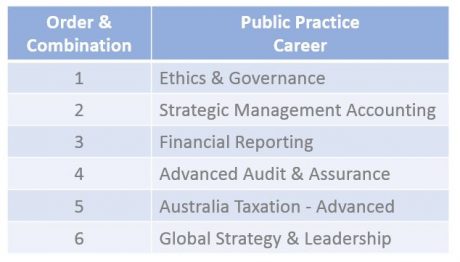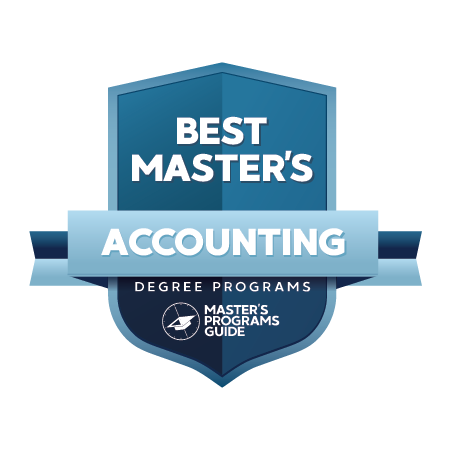
It is easy to manage all your bookkeeping using a single entry system. This system allows you to keep all of your business information together in one place. It is easy to update and flexible. This system doesn't require complex accounting software. Transactions can be recorded with both internal and external parties. Here are some benefits to this system. You can read on to discover more!
Single-entry accounting is a way to record transactions with external parties
Single-entry bookkeeping records all transactions in one account, with one entry per transaction. This method is great for smaller businesses with fewer transactions and simple financial tracking requirements. However, this method is not as accurate than double-entry, which logs each transaction and records both liabilities and assets. This system also tracks sales revenue as well as goods purchased.

It doesn't require complicated accounting software
A single entry system is a good option for small businesses to keep track of their finances. This system doesn't require complex accounting software and can be implemented by anyone without the assistance of a qualified bookkeeper. Single entry systems are also easy to create and implement and don't require sophisticated accounting software. Simple spreadsheets and Excel can be used to create and implement single entry systems. This article will explain the advantages of single-entry systems.
It is flexible
One of the greatest benefits of single entry systems is their flexibility. A business can record transactions using one entry, without needing to create multiple entries for every financial transaction. This is a great option for small businesses that don't conduct many transactions. This method is easy to use and doesn't require additional paperwork. This method records transactions in one book and does away with multiple ledgers, as the name suggests.
It is possible to change it
What is considered changeable? It is a quality that can be changed. Changeable states can exist, regardless of whether they are opinions or weather reports. Here are some examples.

It's prone to making mistakes
This system has some positives, but it also tends to produce errors. The system is not self-balancing, which means that mistakes in recording transactions could go undiscovered for a very long time. With a single entry, audits can be complicated and time-consuming. Depending on the size and complexity of the business, a single entry system might be appropriate for the business. Otherwise, you might need a more comprehensive system to ensure accuracy.
FAQ
Are accountants paid?
Yes, accountants get paid hourly.
Accounting firms may charge an additional fee to prepare complex financial statements.
Sometimes, accountants are hired for specific tasks. An accountant might be hired by a public relations company to create a report that shows how their client is doing.
What's the difference between accounting & bookkeeping?
Accounting studies financial transactions. The recording of these transactions is called bookkeeping.
The two are related but separate activities.
Accounting is primarily about numbers while bookkeeping is primarily about people.
To report on an organization's financial situation, bookkeepers will keep financial information.
They ensure that all the books are balanced by correcting entries for accounts payable, accounts receivable or payroll.
Accountants review financial statements to determine compliance with generally accepted Accounting Principles (GAAP).
If they are unsure, they might recommend changes in GAAP.
Accounting professionals can use the financial transactions that bookkeepers have kept to analyze them.
How does an accountant do their job?
Accountants work together with clients to maximize their money.
They work closely alongside professionals like bankers, attorneys, auditors and appraisers.
They also collaborate with other departments such as marketing and human resources.
Balanced books are the responsibility of accountants.
They determine how much tax must be paid, and then collect it.
They also prepare financial statement that shows how the company is performing.
Accounting Is Useful for Small Business Owners
Accounting isn’t only for big businesses. Accounting is also beneficial for small business owners, as it allows them to keep track of all their money.
You likely already know how much money you get each month if your small business is profitable. But what if you don't have an accountant who does this for you? You may wonder where you're spending your money. You could also forget to pay bills on-time, which could impact your credit score.
Accounting software makes it easy to keep track of your finances. And there are many different kinds available. Some are free while others cost hundreds to thousands of dollars.
But whatever type of accounting system you use, you'll want to understand its basic functions first. This way, you won't waste time learning how to use it.
These are the three most important tasks you should know:
-
Enter transactions into the accounting system.
-
Track your income and expenses.
-
Prepare reports.
These three steps will help you get started with your new accounting system.
What's the significance of bookkeeping & accounting?
Bookkeeping and accounting are important for any business. They are essential for any business to keep track and monitor all transactions.
They will help you to avoid overspending on unnecessary items.
You should know how much profit your sales have brought in. Also, you will need to know how much debt you owe other people.
You can raise your prices if you don’t have enough cash coming in. Customers might be turned off if prices are raised too high.
If you have more than you can use, you may want to sell off some of your inventory.
If you don't have enough, you can cut back on some services or products.
All these factors can impact your bottom line.
What does an auditor do?
Auditors look for inconsistencies among the financial statements' information and the actual events.
He verifies the accuracy of all figures supplied by the company.
He also verifies that the company's financial statements are valid.
What is the purpose of accounting?
Accounting gives an overview of financial performance. It measures, records, analyzes, analyses, and reports transactions between parties. Accounting allows organizations make informed decisions about how much money to invest, how likely they are to earn from their operations, and whether or not they need to raise additional capital.
Accountants track transactions in order provide financial activity information.
The organization can use the collected data to plan its future strategy and budget.
It is vital that the data are reliable and accurate.
Statistics
- According to the BLS, accounting and auditing professionals reported a 2020 median annual salary of $73,560, which is nearly double that of the national average earnings for all workers.1 (rasmussen.edu)
- a little over 40% of accountants have earned a bachelor's degree. (yourfreecareertest.com)
- BooksTime makes sure your numbers are 100% accurate (bookstime.com)
- The U.S. Bureau of Labor Statistics (BLS) projects an additional 96,000 positions for accountants and auditors between 2020 and 2030, representing job growth of 7%. (onlinemasters.ohio.edu)
- Employment of accountants and auditors is projected to grow four percent through 2029, according to the BLS—a rate of growth that is about average for all occupations nationwide.1 (rasmussen.edu)
External Links
How To
How to Become a Accountant
Accounting is the science behind recording transactions and analysing financial data. It also involves the preparation of reports and statements for various purposes.
A Certified Public Accountant or CPA is someone who has passed an exam and received a license from the state board.
An Accredited Financial Analyst (AFA) is an individual who meets certain requirements set forth by the American Association of Individual Investors (AAII). A minimum of five years investment experience is required to become an AFA by the AAII. They must pass several examinations to prove their understanding of securities analysis.
A Chartered Professional Accountant (CPA), also known as a chartered accounting, is a professional accountant with a degree from a recognized university. CPAs must meet specific educational standards established by the Institute of Chartered Accountants of England & Wales (ICAEW).
A Certified Management Accountant (CMA) is a certified professional accountant specializing in management accounting. CMAs must pass exams administered by the ICAEW and maintain continuing education requirements throughout their career.
A Certified General Accountant (CGA) member of the American Institute of Certified Public Accountants (AICPA). CGAs must take multiple tests. One of these is the Uniform Certification Examination (UCE).
International Society of Cost Estimators, (ISCES), offers the Certified Information Systems Auditor (CIA), a certification. Candidates for the CIA need to complete three levels in order to be eligible. These include practical training, coursework and a final examination.
An Accredited Corporate Compliance Officer (ACCO) is a designation granted by the ACCO Foundation and the International Organization of Securities Commissions (IOSCO). ACOs must possess a Bachelor's Degree in Finance, Business Administration, Economics, or Public Policy. They must pass two written exams, and one oral exam.
The National Association of State Boards of Accountancy's Certified Fraud Examiner credential (CFE), is awarded by NASBA. Candidates must pass at least three exams to be certified fraud examiners (CFE).
The International Federation of Accountants (IFAC) has accredited a Certified Internal Auditor (CIA). Candidates must pass four exams covering topics such as auditing, risk assessment, fraud prevention, ethics, and compliance.
An Associate in Forensic Accounting (AFE) is a designation given by the American Academy of Forensic Sciences (AAFS). AFEs must be graduates of an accredited college or university that has a bachelor's in accounting.
What is an auditor? Auditors are professionals who conduct audits of organizations' internal controls over financial reporting. Audits may be conducted on a random basis, or based in part on complaints made by regulators.